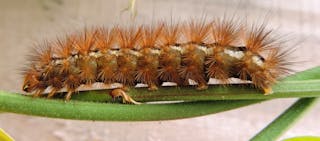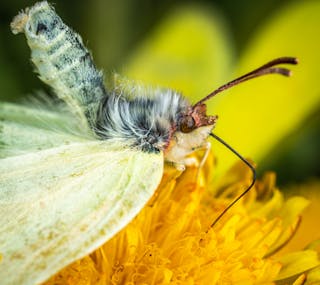
As the weather turns colder and wetter, many animals begin to prepare for winter. Some begin to store food, while others migrate to warmer climates. But what do mosquitoes do? How do these cold-blooded creatures survive the winter months?
There are over 3,500 species of mosquitoes found all over the world. And while they are commonly associated with hot, humid climates, many species can actually survive quite well in cold temperatures. In fact, some mosquitoes have even been known to survive in the snow!
So how do mosquitoes survive the winter?
The answer lies in their ability to adapt.
Some mosquitoes will overwinter as larvae, hiding in ponds and other bodies of water. When the water begins to freeze, the larvae will sink to the bottom and enter a state of dormancy. They can remain in this state for several months, until the water begins to thaw and they can resume their growth and development.
Other mosquitoes will overwinter as adults. These adults will find a protected place to wait out the winter, such as under the bark of a tree or in a hollow log. They will enter a state of dormancy, similar to the larvae, and can remain in this state for several months.
When spring arrives and the weather warms up, the mosquitoes will come out of their dormant state and resume their normal activities.
So, next time you see a mosquito in the middle of winter, don't be so quick to swat it! These resilient creatures have adapted to survive even the harshest conditions.
How do different species of mosquitoes survive the winter?
Different species of mosquitoes survive the winter in different ways. Some species of mosquitoes will overwinter as adults, while others will overwinter as eggs or larvae.
Adult mosquitoes of some species will mate and then the female will find a suitable place to spend the winter. This might be a dry, dark place such as under the bark of a tree. The female will then enter a state of dormancy, during which she will not eat or drink. Her metabolism will slow down and she will not move around much. This state of dormancy helps the female to survive the winter, as she will not use up her energy reserves and will not be exposed to the cold weather.
Other species of mosquitoes will overwinter as eggs. The eggs will be laid in water and will then hatch in the spring when the water temperature rises. The larvae will then develop into adults and the cycle will start again.
Mosquitoes of some species will overwinter as larvae. The larvae will develop into pupae and the pupae will then develop into adults. This process will take place in the spring when the weather becomes warmer.
Different species of mosquitoes survive the winter in different ways, but all of them need to be able to withstand cold temperatures. Some species of mosquitoes will mate and then enter a state of dormancy, while others will overwinter as eggs or larvae.
What temperature do mosquitoes need to survive the winter?
What temperature do mosquitoes need to survive the winter?
Mosquitoes are cold-blooded creatures, meaning their body temperature changes with the temperature of their surroundings. Consequently, they are more active in warmer temperatures and become less active as the temperature drops. In order to survive the winter, mosquitoes must find a place where they can stay warm enough to remain active.
There are a number of different ways that mosquitoes can survive the winter. One is to find a protected location where the air temperature is just above freezing. Such locations might include the cracks and crevices of buildings, or underneath piles of leaves or other organic matter. Another strategy is for mosquitoes to enter a state of dormancy, known as diapause. During diapause, the mosquito’s metabolism slows down and it does not develop or reproduce. This allows the mosquito to survive periods of cold weather until the temperature rises again and it can become active once more.
Although mosquitoes can survive temperatures as low as 29 degrees Fahrenheit, they are most likely to survive if the temperature is above freezing. In order for mosquitoes to remain active, their body temperature needs to be between 86 and 104 degrees Fahrenheit. This means that mosquitoes are more likely to survive in warmer climates, where the temperatures are more likely to remain above freezing during the winter months.
Mosquitoes are an important part of the ecosystem, as they are a food source for many animals. However, they can also spread diseases, such as malaria and West Nile virus. As a result, it is important to try to reduce the mosquito population in your area, especially if you live in an area where the risk of disease transmission is high. There are a number of different ways to reduce the mosquito population, including eliminating standing water, using mosquito netting, and applying insecticide.
How long can mosquitoes survive the winter?
As temperatures start to drop in the fall, many people might think that mosquitoes will start to disappear. However, these insects can actually survive quite well in cold weather, as long as they have access to a water source.
Mosquitoes can enter a state of dormancy known as diapause in order to survive cold winter months. This process slows down their metabolism and development, allowing them to go without food or water for long periods of time. Once spring arrives and temperatures start to rise again, they will emerge from diapause and resume their normal activities.
In order for mosquitoes to enter diapause, they must first reach a certain size and age. Once they reach this point, they will start to develop a thicker layer of fat under their skin. This fat reserves will help them survive the winter months without feeding.
Mosquitoes can actually survive quite cold temperatures, as long as they are not exposed to prolonged freezing. They have been known to survive temperatures as low as -20 degrees Fahrenheit. However, they will not survive being frozen solid. If they are exposed to a hard freeze, they will die.
While mosquitoes can survive the winter months, they will not be able to mate or lay eggs until spring arrives. This means that any mosquito population will dwindle over the winter months and will need to start from scratch in the spring.
So, while mosquitoes may be a nuisance in the warmer months, they will eventually disappear when winter arrives. However, they will be back come springtime, so be sure to keep your mosquito repellent handy!
What do mosquitoes eat during the winter?
During the winter, mosquitoes typically eat the same sorts of things that they do during the summer. They will feast on the blood of mammals and birds, using their long, sharp proboscis to pierce the skin and draw out a tasty meal. In addition to blood, mosquitoes may also eat plant nectar and honeydew, which they can find on the leaves of plants. While blood is the primary source of nutrients for mosquitoes, they will take in other sources of food when available.
During the colder months, mosquitoes may go into a state of semi-hibernation, known as diapause. In this state, they will not feed as often, instead opting to conserve their energy. When the weather warms up again, mosquitoes will become more active and will resume their normal feeding patterns.
So, to answer the question, mosquitoes do eat during the winter, but they may not be as active as they are during the warmer months. They will still feast on blood when they can find it, and they may also consume other sources of food, such as plant nectar or honeydew.
How do mosquitoes reproduce during the winter?
Mosquitoes are able to reproduce during the winter by a process known as diapause. This is a type of dormancy that allows them to suspend their development during times of unfavorable conditions, such as when the weather is too cold for them to survive. When the conditions improve, they can resume their development and continue their life cycle.
Mosquitoes go through four different stages in their life cycle: egg, larva, pupa, and adult. The length of time it takes to go through each stage varies depending on the species of mosquito, but it can range from a few days to a few weeks.
The female mosquito will lay her eggs in standing water, such as in a puddle or pond. Once the eggs hatch, the larvae will develop and feed on microorganisms in the water. They will then go through several molts, shedding their skin as they grow. Once they reach the pupal stage, they will attach themselves to something in the water and undergo metamorphosis into an adult.
The adult mosquito will then mate and the cycle will start over again. In order for mosquitoes to reproduce during the winter, the female will lay her eggs in a protected location, such as in the mud at the bottom of a pond. The eggs will then enter a state of diapause and remain dormant until the conditions are favorable for them to hatch.
What are the consequences of mosquitoes not surviving the winter?
If mosquitoes were to stop surviving the winter, it would have a huge impact on many different aspects of our lives. For starters, it would mean that we would no longer have to worry about contracting mosquito-borne diseases such as malaria, West Nile virus, and Zika virus. This would be a huge relief for many people who live in areas where these diseases are prevalent. It would also mean that we would no longer have to deal with the annoyance of mosquitoes buzzing around our heads in the summer months. However, there are also some potential downside to this scenario.
Without mosquitoes around to act as pollinators, many plants would no longer be able to reproduce. This could have a devastating impact on the ecosystem, as many plants rely on mosquitoes for pollination. Additionally, without mosquitoes around to prey on them, populations of amphibians and other small animals could explode. This could lead to a decrease in overall biodiversity, as the animals that mosquitoes typically prey on would no longer be kept in check.
In the end, it is difficult to say definitively what the consequences of mosquitoes not surviving the winter would be. It is clear that there would be some positive and negative impacts. However, it is impossible to know exactly how large or small those impacts would be.
What impact does the winter have on mosquito populations?
Mosquito populations are known to respond to a variety of environmental factors, and temperature is one of the most important drivers of mosquito activity and abundance. In general, as temperatures increase, mosquito populations increase as well. However, the winter months can have a significant impact on mosquito populations, depending on the region.
In colder regions, the winter can have a devastating impact on mosquito populations. prolonged periods of below-freezing temperatures can kill large numbers of mosquitoes, and reduce the overall population size. In some cases, mosquito populations may not recover until the following spring or summer. However, in other cases, mosquitoes may overwinter in protected areas, such as inside houses or other structures, and be able to survive and even thrive in the winter months.
In warmer regions, the winter months may not have as large of an impact on mosquito populations. In fact, in some cases, the winter months may actually provide ideal conditions for mosquitoes, with mild temperatures and high humidity levels. As a result, mosquito populations in these regions may actually increase during the winter months.
Overall, the winter can have a significant impact on mosquito populations, depending on the region. colder regions may see a decrease in mosquito populations, while warmer regions may see an increase.
What can be done to prevent mosquitoes from surviving the winter?
There are many things that can be done to prevent mosquitoes from surviving the winter. One of the most important things is to make sure that there is no standing water around your home. This is because mosquitoeslay their eggs in water, and if there is no water for the eggs to hatch in, then the mosquitoes will not be able to survive. You can also use mosquito dunks or larvicide to kill the mosquitoes before they have a chance to hatch. If you live in an area where there is a lot of snow, you can also try to keep the snow around your home from melting. This is because mosquitoes can sometimes survive in the snow if it is melted.
Frequently Asked Questions
What happens to mosquitoes in the winter?
In the winter, mosquito eggs can stay in moist soil or icy waters and resume their life cycle when the weather is more hospitable. Don't wait until the warmer weather to do something about mosquito control. MosquitoNix® can help you develop a strategy to eliminate mosquito habitats.
What is the life cycle of a mosquito?
The life cycle of a mosquito is as follows: the female mosquitoes lay their eggs in standing water. The eggs will hatch within 24-48 hours and the larvae will feed on algae and bacteria before they transform into adults.
Do Mosquitoes lay eggs in cold water?
Yes, adult female mosquitoes lay eggs in cold water—ponds, bogs, wetlands, etc.—where the eggs remain until warmer water temperatures prompt them to hatch.
Do mosquitoes die when it’s Cold?
Mosquitoes don’t simply die off when the weather dips below freezing. In fact, many species of mosquitoes actually populations spike in colder weather due to the following two factors: 1.larger wetlands & bodies of water where mosquitoes lay their eggs freeze over, creating larval habitats that mosquitoes prefer; and 2.the presence of body heat throughout the cold months enticing more people (and mosquitoes) outside to hunt for food. While it is true that frozen habitats support mosquito populations more than warmer environments do, there are a few things you can do to minimize your chances of attracting mosquitoes outdoors in colder months: wear long sleeves and pants when outside during cold months; keep doors and windows sealed up tight when not in use; avoid being exposed to standing water (which can serve as mosquito breeding grounds); and make sure all attractive items around your home – like flowers – have been removed or covered up before the winter chill sets in.
Do mosquitoes hibernate in the winter?
Yes, mosquitoes will hibernate in the winter if their internal temperature reaches colder than 50 degrees.



